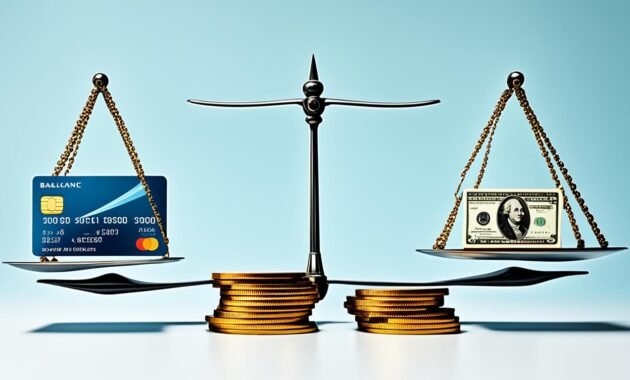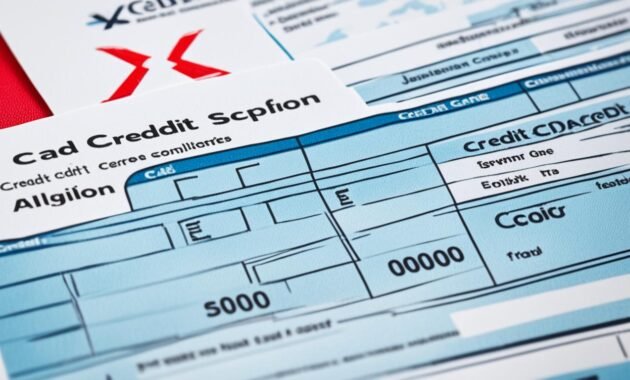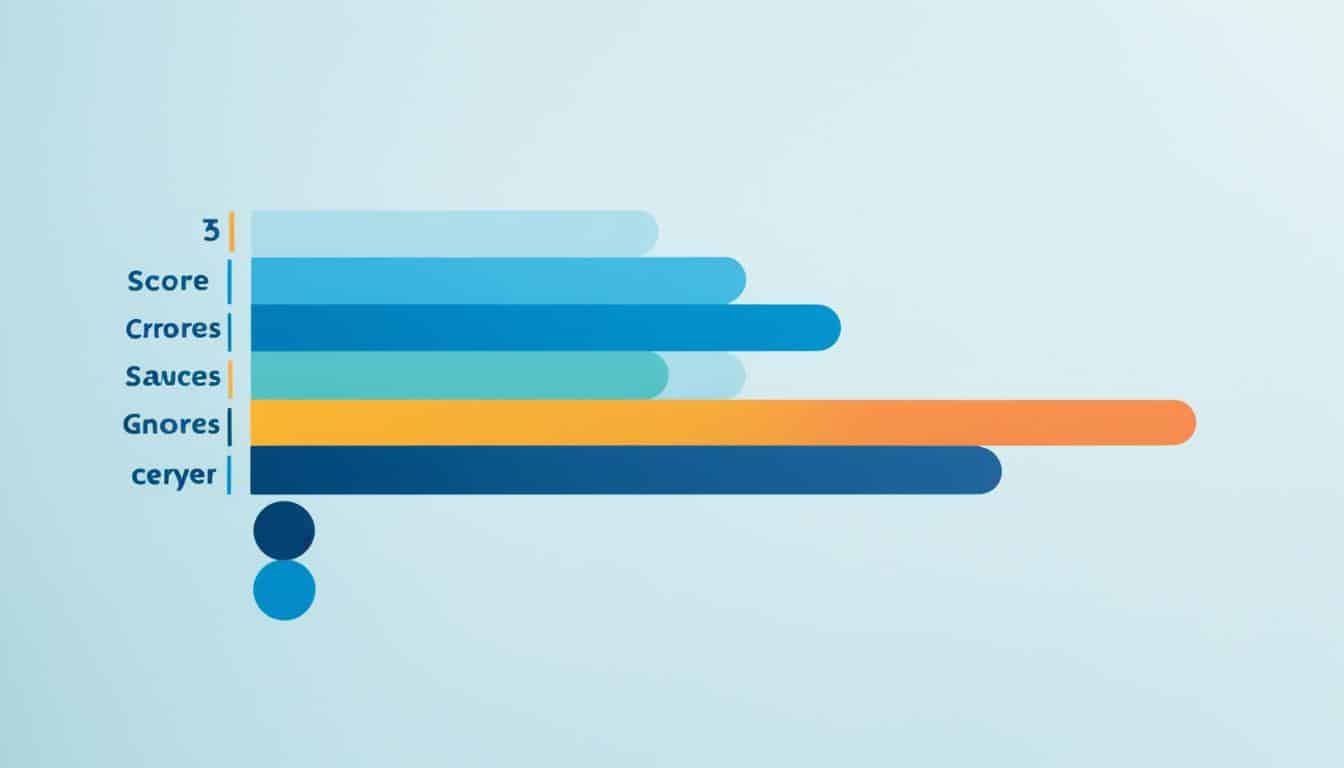When it comes to applying for a credit card, understanding the process is key. Whether you’re considering your first credit card or looking to add another one to your wallet, knowing the ins and outs of the application process can help you navigate through it smoothly. In this section, we’ll walk you through the steps of applying for a credit card, from checking your credit score to submitting your application to a card issuer.
One crucial aspect of the application process is your credit score. This three-digit number represents your creditworthiness and plays a significant role in determining whether you will be approved for a credit card. Before applying, it’s important to check your credit score and review your credit history for any potential errors or issues. This will give you a better understanding of where you stand and what to expect during the application process.
Once you have a clear picture of your credit situation, you can start researching and comparing different credit cards. Look for cards that align with your financial goals, whether it’s earning rewards, building credit, or accessing certain benefits. Pay attention to factors such as interest rates, annual fees, and rewards programs to find the card that best suits your needs.
Once you’ve chosen a card, the next step is to complete the application. Most card issuers allow you to apply online, making the process quick and convenient. You’ll typically need to provide personal information, including your name, address, social security number, and employment details. The card issuer will also ask about your income, expenses, and any other financial obligations you may have.
After submitting your application, the card issuer will review it along with your credit history. They will evaluate your creditworthiness to determine whether you meet their criteria for approval. This evaluation includes factors such as your credit score, credit utilization, payment history, and any derogatory marks on your credit report.
If your application is approved, you will receive your new credit card in the mail within a few business days. From there, you can activate your card, set up any necessary account alerts or notifications, and begin using your credit card responsibly.
Understanding the process for applying for a credit card is essential for a successful application. By taking the time to familiarize yourself with the steps involved, checking your credit score, and choosing a card that suits your needs, you can maximize your chances of approval and make the most of your new credit card.
Key Takeaways:
- Before applying for a credit card, check your credit score and review your credit history to understand your creditworthiness.
- Research and compare different credit cards to find one that aligns with your financial goals and offers favorable terms.
- Complete the credit card application with accurate personal and financial information.
- The card issuer will evaluate your creditworthiness based on your credit score, credit utilization, payment history, and other factors.
- If approved, you will receive your credit card in the mail and can begin using it responsibly.
The Importance of Knowing Your Credit Score
Before applying for a credit card, it’s crucial to know your credit score. This three-digit number represents your creditworthiness and is used by card issuers to assess your ability to repay a loan.
Your credit score is based on various factors, including your payment history, credit utilization, length of credit history, and types of credit accounts. A higher credit score indicates a higher level of creditworthiness, making you more likely to be approved for credit cards with better terms and rewards.
To obtain your credit score, you can request a free copy of your credit report from the three major credit reporting bureaus: Equifax, Experian, and TransUnion. These bureaus compile information on your credit history and use it to generate your credit score.
Knowing your credit score can help you determine if you’re ready to apply for a card or if you need to take steps to improve your creditworthiness before applying.
By reviewing your credit report, you can identify any errors or inaccuracies that may be negatively affecting your credit score. It’s important to dispute any incorrect information to ensure your credit report accurately reflects your credit history.
Understanding your credit score and credit report can also help you identify areas where you can improve your creditworthiness, such as paying bills on time, reducing credit card balances, and minimizing new credit applications.
Image:
Having a good credit score not only increases your chances of approval when you apply for a card, but it may also help you qualify for lower interest rates, better rewards, and higher credit limits. It’s essential to be aware of your credit score and creditworthiness before applying for a credit card to make informed financial decisions.
How to Improve Your Credit Score
Improving your credit score is essential for better financial opportunities and loan approvals. By following a few key strategies, you can boost your creditworthiness and improve your chances of qualifying for credit cards and loans in the future.
Make Payments On Time
One of the most important factors in maintaining a healthy credit score is making payments on time. Late payments can significantly impact your creditworthiness and lead to negative remarks on your credit report. To avoid this, set up automatic payments or reminders to ensure you never miss a due date.
Keep Balances Low
Another crucial aspect of improving your credit score is keeping your credit card balances low. High balances can negatively affect your credit utilization ratio, which is the percentage of your available credit that you’re using. Aim to keep your balances below 30% of your credit limit to demonstrate responsible credit usage.
Avoid Taking on New Debt
When working to improve your credit score, it’s important to avoid taking on new debt whenever possible. Opening new credit accounts can temporarily lower your score and increase your credit utilization ratio. Instead, focus on managing your existing debt and gradually paying it down.
Pro Tip: Consider freezing your credit or opting out of pre-approved credit offers to minimize the temptation of taking on new debt.
Monitor Your Credit Utilization Ratio
Your credit utilization ratio is a significant factor in calculating your credit score. It’s wise to keep this ratio below 30% by paying down balances and using credit responsibly. Regularly monitoring your credit utilization will help you stay on track towards improving your credit score.
Review Your Credit Report Regularly
It’s essential to review your credit report regularly to identify any errors or discrepancies that may be impacting your credit score. Contact the credit reporting bureaus to dispute any inaccuracies and work towards resolving them to ensure an accurate reflection of your creditworthiness.
By implementing these strategies, you can improve your credit score over time and open up opportunities for better financial options in the future.
Illustration: Improving your credit score is like climbing a ladder. Take the necessary steps to build a strong credit foundation. – Image by seowriting.ai
Factors to Consider When Choosing a Credit Card

When it comes to choosing a credit card, there are several important factors to consider. Each card comes with its own terms and benefits, so it’s crucial to compare and find one that suits your financial needs. Here are some key considerations to keep in mind:
1. Annual Fees
Annual fees are charges imposed by credit card issuers for the privilege of using the card. Not all credit cards have annual fees, but those that do may offer additional perks or rewards programs. It’s important to weigh the value of these benefits against the cost of the annual fee.
2. Interest Rates
Interest rates, also known as Annual Percentage Rates (APR), determine the cost of borrowing on your credit card balance. Lower interest rates can save you money on interest charges if you carry a balance from month to month. Take the time to compare the interest rates of different cards to find one that offers favorable terms.
3. Rewards and Benefits
Many credit cards offer rewards programs that allow you to earn points, miles, or cashback on eligible purchases. Consider the types of rewards offered and how they align with your spending habits and preferences. Some cards may offer bonus rewards for specific categories like dining, travel, or groceries, while others may provide more flexibility in redeeming your rewards.
4. Balance Transfer Options
If you currently have credit card debt with high-interest rates, you may want to consider a card that offers a balance transfer option. This feature allows you to transfer your existing balances onto a new card with a lower or zero percent introductory APR. However, it’s essential to review the terms and fees associated with balance transfers, as they can vary depending on the issuer.
5. Credit Card Terms and Conditions
Before selecting a credit card, be sure to carefully review the terms and conditions. Pay attention to details such as late payment fees, penalty APRs, and grace periods. Understanding these terms can help you avoid unnecessary fees and penalties in the future.
By considering these factors and comparing different credit card options, you can make an informed decision that aligns with your financial goals. To help you visualize the differences between credit cards, here is a comparison table highlighting key features:
| Credit Card | Annual Fee | Interest Rate | Rewards Program | Balance Transfer |
|---|---|---|---|---|
| Card A | $0 | 15.99% | Cashback on all purchases | 0% APR for 12 months |
| Card B | $95 | 12.99% | Airline miles with bonus categories | 3% fee for balance transfers |
| Card C | $75 | 19.99% | Points for travel and dining | No balance transfer option |
This table provides a quick snapshot of three different credit cards, highlighting their annual fees, interest rates, rewards programs, and balance transfer options. Keep in mind that this is just an example, and the actual terms and features of credit cards may vary.
By evaluating these factors and carefully comparing credit card options, you can find the card that best suits your financial needs and goals.
Understanding Common Credit Card Terms

When it comes to credit cards, understanding common terms is essential for making informed financial decisions. Familiarize yourself with the following credit card terms to navigate the world of credit effectively.
Annual Percentage Rate (APR)
The Annual Percentage Rate, or APR, represents the cost of borrowing on a credit card. It includes the interest rate and any additional fees charged by the card issuer. It’s important to pay attention to the APR, as it can impact your overall credit card expenses.
Balance Transfer
A balance transfer allows you to move the balance from one credit card to another, often with a lower interest rate or promotional period. This can help save on interest charges and consolidate multiple credit card balances into one. However, it’s important to consider any applicable fees before opting for a balance transfer.
Cash Advance
A cash advance allows you to withdraw cash from your credit card, usually at an ATM or bank. However, cash advances often come with higher interest rates and additional fees, making them an expensive way to borrow money. It’s generally recommended to avoid cash advances unless absolutely necessary.
Penalty APR
A penalty APR is a higher interest rate imposed by the credit card issuer as a consequence for certain actions, such as making late payments or exceeding the credit limit. It’s crucial to understand the terms and conditions of your credit card to avoid triggering a penalty APR and incurring additional costs.
Rewards Rates
Many credit cards offer rewards programs where you can earn points, miles, or cashback on your purchases. Rewards rates refer to the percentage of rewards you can earn on specific spending categories or overall purchases. Choosing a credit card with rewards rates that align with your spending habits can help you maximize the benefits of your credit card.
“Understanding credit card terms is crucial for managing your finances effectively. Make sure to review each term carefully and consider their implications before making any credit-related decisions.”
To summarize, familiarize yourself with credit card terms such as APR, balance transfer, cash advance, penalty APR, and rewards rates. These terms will help you navigate the world of credit and make informed decisions to manage your finances effectively.
Applying for a Credit Card Strategically

When it comes to applying for a credit card, having a strategic approach can greatly increase your chances of approval. This is especially important if you have a low credit score and need to take extra steps to improve your creditworthiness. By understanding the specific card requirements and exploring options such as pre-qualifying or applying for a secured credit card, you can make informed decisions that align with your financial goals.
Secured Credit Cards for Building Credit
If your credit score is less than ideal, a secured credit card can be a valuable tool for rebuilding your credit. These cards require a cash deposit that serves as your credit limit. By using the card responsibly and making timely payments, you can establish a positive payment history and boost your credit score over time. Some secured credit card issuers may even offer the opportunity to upgrade to an unsecured card and refund your deposit.
Pre-Qualifying for Credit Cards
Pre-qualifying for a credit card can give you an idea of your eligibility without impacting your credit score. Many credit card issuers offer online pre-qualification forms where you can provide basic information to determine if you meet their criteria. This can help you narrow down your options and focus on applying for cards that align with your credit profile.
Keep in mind that pre-qualification is not a guarantee of approval, but it can guide you in the right direction and save you from unnecessary credit inquiries.
Understanding Specific Card Requirements
Each credit card has its own set of requirements and qualifications. It’s crucial to understand these specific criteria before applying to avoid any potential rejection or wasted time. Consider factors such as credit score ranges accepted, minimum income requirements, and credit history length. By knowing these requirements in advance, you can select credit cards that are more likely to approve your application.
“By applying for a credit card with a thorough understanding of credit scores, pre-qualification options, and specific card requirements, you can maximize your chances of approval and take strategic steps towards building a stronger credit profile.”
By applying for a credit card with a thorough understanding of credit scores, pre-qualification options, and specific card requirements, you can maximize your chances of approval and take strategic steps towards building a stronger credit profile. Remember to manage your credit responsibly by making timely payments and keeping your credit utilization low. With time and responsible credit card use, you can improve your credit score and gain access to even more favorable credit card offers.
Tips for a Successful Credit Card Application

When it comes to applying for a credit card, there are a few key tips to keep in mind to increase your chances of success. By following these guidelines, you can ensure that your application stands out and presents your case for approval in the best light possible.
1. Provide Accurate Information
One of the most important aspects of a successful credit card application is to provide accurate information. Make sure to double-check all the details you provide, including your personal information, income, and employment history. Inaccurate information can lead to delays or even denial of your application.
2. Prepare for Questions
Card issuers may have questions about your application or require additional documentation. Prepare yourself by having relevant documents, such as proof of income, ready to submit if requested. By being proactive and prepared, you can streamline the application process and demonstrate your commitment to responsible credit card use.
3. Make a Case for Approval
When filling out your credit card application, take the opportunity to make a case for why you should be approved. Highlight your positive financial habits, such as a history of making timely payments or managing credit responsibly. Clearly communicate why you believe you are a suitable candidate for the card.
4. Be Polite and Professional
When interacting with the card issuer, whether through the application or any subsequent communication, always maintain a polite and professional demeanor. Being courteous and respectful can leave a positive impression and contribute to a favorable decision on your application.
5. Consider Waiting if Denied
If your credit card application is denied, it’s important to consider waiting before applying again. Applying for multiple credit cards within a short period can have a negative impact on your credit score. Take the time to reassess your financial situation, address any concerns raised by the issuer, and work on improving your credit before reapplying.
Remember, patience and persistence are key when it comes to credit card applications. By providing accurate information, preparing for questions, making a case for approval, being polite, and considering waiting if denied, you can maximize your chances of success.
| Key Tips for a Successful Credit Card Application |
|---|
| Provide accurate information |
| Be prepared to answer questions |
| Make a case for approval |
| Be polite and professional |
| Consider waiting if denied |
How Credit Scores Impact Credit Card Approval

Credit scores play a crucial role in the credit card approval process. Lenders categorize credit scores into different ranges, including bad credit, average credit, good credit, and excellent credit. Your credit score is a reflection of your creditworthiness and determines your eligibility for various credit cards.
Having a higher credit score significantly increases your chances of getting approved for better credit cards. Lenders view individuals with excellent or good credit scores as low-risk borrowers who are likely to make timely payments and manage their credit responsibly.
“Your credit score is a powerful tool that can open doors to better credit card options. A good credit score demonstrates your ability to handle credit responsibly.”
On the other hand, individuals with bad credit or average credit scores may have limited options and may need to consider credit cards specifically designed to help rebuild credit. These cards may have higher interest rates or require a cash deposit as collateral.
In addition to credit scores, card issuers also take into account other factors such as income, employment history, and existing debts when evaluating credit card applications. However, your credit score remains a key factor in the approval decision and can greatly impact the type of credit cards you qualify for.
Examples of Credit Score Ranges:
| Credit Score Range | Credit Category |
|---|---|
| 300-579 | Bad Credit |
| 580-669 | Average Credit |
| 670-739 | Good Credit |
| 740-850 | Excellent Credit |
Keep in mind that credit score ranges may vary slightly depending on the scoring model used by lenders. It’s important to regularly check your credit score and strive to improve it if needed by focusing on responsible credit management, such as making payments on time and keeping your credit utilization low.
Understanding how credit scores impact credit card approval can help you make informed decisions when choosing and applying for credit cards. By maintaining a good credit score, you can access a wider range of credit card options and enjoy the benefits they offer.
Secured Credit Cards for Building Credit

Secured credit cards are a valuable tool for individuals looking to build their credit history. These cards require a cash deposit that serves as the credit limit, providing a sense of security for both the cardholder and the card issuer. By responsibly utilizing a secured credit card, individuals can establish a positive credit history and work towards improving their overall credit score.
When applying for a secured credit card, a cash deposit is required as collateral. The deposit typically determines the credit limit you will be granted. For example, if you provide a $500 cash deposit, your credit limit will also be $500. This cash deposit reduces the risk for the card issuer, as they can utilize these funds in the event of non-payment.
Using a secured credit card responsibly is crucial for building and improving credit history. By making timely payments and keeping balances low, individuals can demonstrate their ability to manage credit effectively. Over time, this positive payment behavior reflects on their credit report and can potentially increase their credit score.
Secured credit cards offer individuals with limited or poor credit history an opportunity to establish themselves within the credit system. While traditional credit cards may require a certain level of creditworthiness for approval, secured credit cards provide a solution for those who are looking to rebuild or establish their credit. These cards act as a stepping stone towards better credit opportunities in the future.
Benefits of Secured Credit Cards
- Build Credit: Secured credit cards allow individuals to start building their credit history, making it easier to qualify for unsecured credit cards in the future.
- Credit Limit: The credit limit of a secured credit card is determined by the cash deposit, providing control and preventing overspending.
- Deposit Refund: Some secured credit cards offer the opportunity to upgrade to an unsecured card and get the deposit back after a certain period of responsible card usage.
- Establish Positive Credit History: Consistent and responsible repayment habits with a secured credit card can help create a positive credit history, reflecting financial responsibility to future lenders.
It’s worth noting that the exact terms and conditions of secured credit cards can vary between different card issuers. Before applying, it’s essential to carefully review the terms, including interest rates, fees, and any deposit refund policies, to ensure you choose a secured credit card that aligns with your financial goals.
Secured credit cards provide a valuable opportunity for individuals to build or rebuild their credit history. Through the use of a cash deposit, these cards offer a sense of security for both the cardholder and the card issuer. By responsibly managing a secured credit card, individuals can establish a positive credit history, improve their credit score, and open doors to future financial opportunities.
Common Mistakes to Avoid When Applying for a Credit Card

When applying for a credit card, it’s essential to be aware of common mistakes that can hinder your chances of approval and negatively impact your credit. By avoiding these pitfalls, you can increase your likelihood of a successful application and set yourself up for a positive credit card experience.
1. Providing inaccurate information: Always provide accurate information on your credit card application. Falsifying information can lead to immediate rejection and potential consequences in the future.
2. Overestimating income: Be honest when stating your income on the application. Overestimating your income may appear suspicious and lead to denial or fraud accusations.
3. Committing fraud: Engaging in fraudulent activities, such as using false identities or committing identity theft, not only puts your credit card application at risk but also has serious legal repercussions.
4. Maintaining high credit utilization: High credit utilization, which is the ratio of your credit card balance to your credit limit, can negatively impact your credit score. Keeping your credit utilization low is crucial for a healthy credit profile and increased chances of approval.
By being aware of these mistakes and ensuring you provide accurate information, stay honest about your income, avoid fraudulent activities, and maintain low credit utilization, you can improve your chances of credit card approval. Remember, responsible credit card usage is essential for building a positive credit history.
The Pros and Cons of Applying for a Credit Card

Applying for a credit card can have both benefits and risks. It’s important to weigh the advantages and disadvantages before making a decision. Understanding these factors will help you make responsible credit card use choices that align with your financial goals and circumstances.
Benefits of Applying for a Credit Card
- Building Credit: One of the main benefits of applying for a credit card is the opportunity to establish and improve your credit score. When used responsibly, timely payments and responsible credit utilization can help boost your creditworthiness.
- Earning Rewards: Many credit cards offer rewards programs that allow you to earn cashback, travel rewards, or other perks on your purchases. Depending on the card, you could earn points or cashback on everyday expenses, saving you money in the long run.
- Added Security: Credit cards often come with added security features, such as fraud protection and zero-liability policies. These safeguards can provide peace of mind when making online purchases or using your card in unfamiliar places.
Risks of Applying for a Credit Card
- Debt Accumulation: One of the biggest risks of applying for a credit card is the potential to accumulate debt if not used responsibly. It’s crucial to only charge what you can afford to pay off and avoid carrying high balances that may result in interest charges.
- Negative Impact on Credit: Irresponsible credit card use, such as missing payments or maxing out your credit limit, can have a negative impact on your credit score. This could make it more difficult to obtain credit in the future for major purchases like a home or car.
Responsible credit card use is key to maximizing the benefits and minimizing the risks associated with owning a credit card. By paying your bills on time, keeping balances low, and using credit wisely, you can enjoy the advantages of credit while avoiding potential pitfalls.
It’s important to consider your financial situation, spending habits, and goals when deciding whether to apply for a credit card. Take the time to research and compare different cards, read the terms and conditions carefully, and ensure that you can handle the responsibilities that come with owning a credit card.
Remember, responsible credit card use can help you build a positive credit history, manage your finances effectively, and take advantage of the benefits that credit cards offer.
| Pros | Cons |
|---|---|
| Building credit | Debt accumulation |
| Earning rewards | Negative impact on credit |
| Added security |
Also Read : Credit Card Issuer Insights For Secure Spending
Conclusion
Applying for a credit card involves a careful understanding of the process and making strategic decisions. It is important to know your credit score and take proactive steps to improve it. By considering factors such as creditworthiness, credit card terms, and your financial needs, you can increase your chances of credit card approval.
Throughout the credit card application process, providing accurate information and maintaining a polite demeanor can greatly contribute to a successful application. However, it’s important to be aware of common mistakes like overestimating income or having high credit utilization that can negatively impact your chances of approval.
In conclusion, by being proactive in understanding the credit card process, building a good credit history, and making informed choices, you can enhance your credit card approval prospects and have a positive credit card experience. Remember, responsible credit card use can help you achieve your financial goals while making the most of the benefits and rewards that come with it.
FAQs
Q: What is the best way to apply for a credit card?
A: The best way to apply for a credit card is online through the website of the credit card company or through a trusted financial institution.
Q: How can I check my credit before applying for a credit card?
A: You can check your credit for free through various online services or request a copy of your credit report from the major credit bureaus.
Q: What are the factors that can affect my chances of approval for a credit card?
A: Factors that can affect your chances of approval include your credit history, credit score, income, debt-to-income ratio, and employment status.
Q: Can I apply for a credit card if I have bad credit?
A: Yes, there are credit cards designed for individuals with bad credit or no credit history. These cards can help you rebuild your credit over time.
Q: How long does it take to get approved for a credit card?
A: The approval process for a credit card can vary, but you may receive a decision within minutes if applying online. In some cases, you may need to wait a few days for a decision.
Q: What type of credit card is best for first-time users?
A: For first-time users, it’s advisable to consider a student credit card, secured credit card, or a card with a low credit limit to help build credit responsibly.
Q: Can applying for a credit card online hurt my credit score?
A: Applying for a credit card online may result in a temporary dip in your credit score due to the hard inquiry made by the credit card company. However, the impact is usually minimal and short-lived.
Source Links
- https://wallethub.com/edu/cc/how-to-apply-for-a-credit-card/25512
- https://www.bankrate.com/finance/credit-cards/how-to-apply-for-a-credit-card/
- https://www.nerdwallet.com/article/credit-cards/apply-for-a-credit-card
